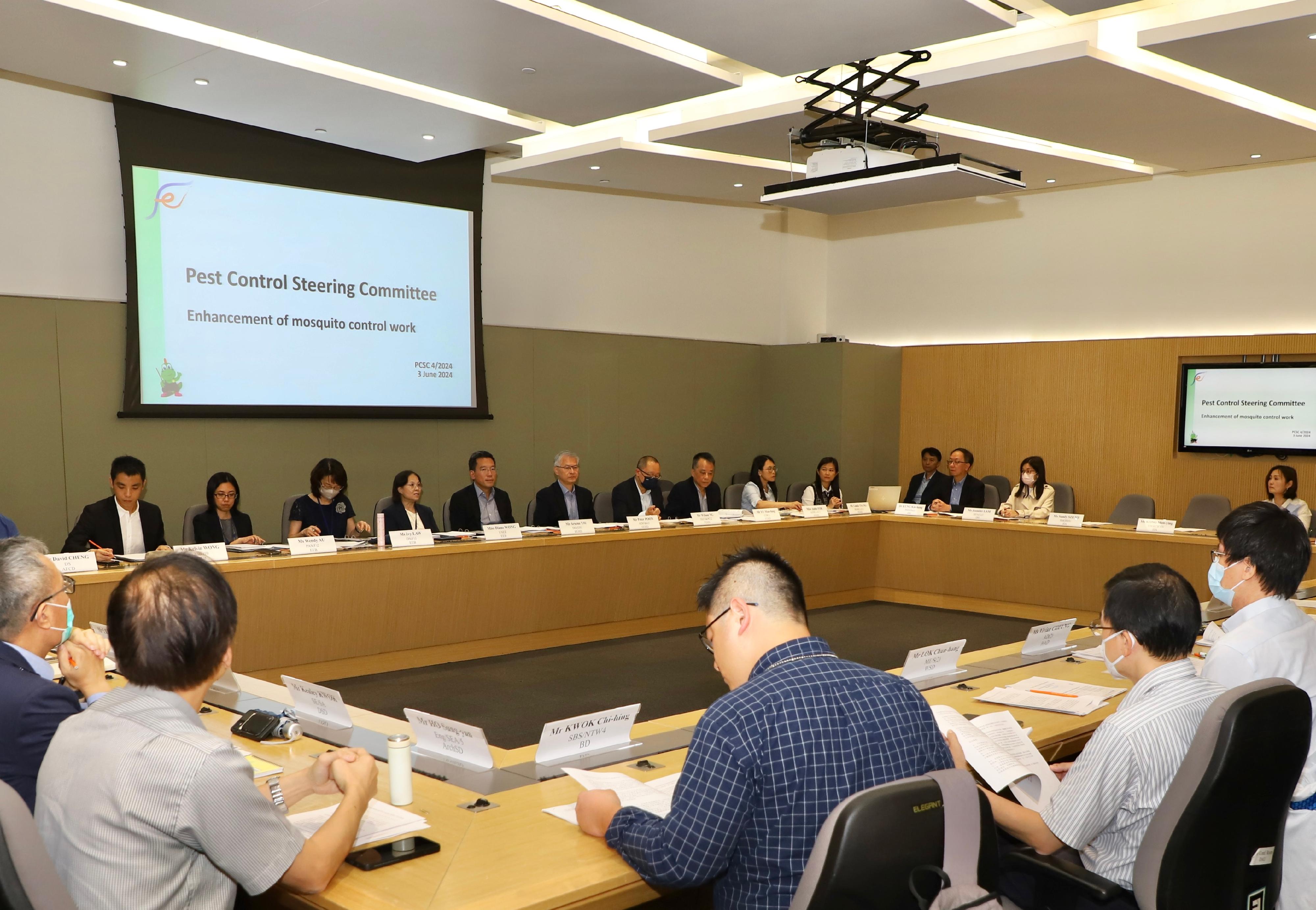Government responds to media reports on seasonal influenza vaccines
In response to media reports on the use of seasonal influenza vaccination (SIV), a spokesman for the Department of Health (DH) today (June 3) stressed that the Government has all along been committed in encouraging members of the public to receive SIV, and has made arrangement to facilitate members of the public (including school children) to receive SIV through various SIV programmes. Given the potential immunisation gap in children due to the COVID-19 pandemic, the Government has expanded the eligibility of the SIV programmes, from young children and primary students to persons aged 12 to 18 since the 2022/23 SIV season, meaning that the vaccination programme has covered all children and adolescents aged below 18 years. Currently, over 1.86 million doses of SIV had been administered under various SIV programmes in the 2023/24 season, representing an increase of 20 per cent comparing with the same period last year, reaching a record high.
School Outreach Vaccination Services
To enhance the vaccination rate of schoolchildren and to assist in arranging outreach vaccination services by schools, the Seasonal Influenza Vaccination School Outreach (Free of Charge) Programme was launched in 2018/19 and has been regularised since 2020/21. The Programme covers all the kindergartens, primary and secondary schools in the territory. The Government arranges for a Public-Private-Partnership Team or a Government Outreach Team to provide free SIV service for schoolchildren at participating schools. Schools not participating in the above free-of-charge programme can invite doctors providing outreach vaccination under the Vaccination Subsidy Scheme from the list published on the Centre for Health Protection (CHP)'s website to arrange outreach SIV service at their campus under the Vaccination Subsidy Scheme School Outreach (Extra Charge Allowed). For the current SIV season, around 350 secondary schools, around 630 primary schools and around 890 kindergartens, kindergarten-cum-child care centres and child care centres have enrolled in the above two programmes, accounting for about 70, 95 and 80 per cent of the schools concerned across the territory respectively.
With the DH's publicity effort, the number of students receiving SIV in 2023/24 has significantly increased compared to last year. As at June 2, under the Government Vaccination Programme, about 538 200 doses of SIV have been administered for children aged between 6 months and below 18 years of age, reaching a record high and increased by about 36.9 per cent comparing to last year. The overall vaccine coverage rate has reached 52.9 per cent, which has marked an increase of 13.1 per cent for the same period last year (39.8 per cent).
Arrangement and limitation of live attenuated influenza vaccine (i.e. nasal vaccine) (LAIV)
According to recommendations of the Scientific Committee on Vaccine Preventable Diseases (SCVPD) under the CHP of the DH, overseas research and clinical experience generally showed that both injectable inactivated influenza vaccines (IIV) and nasal LAIV are safe and both vaccines can offer comparable protection to the receivers. There is no scientific evidence supporting the priority use of nasal LAIV thus far. The DH has been conducting annual survey to gather feedback from enrolled doctors and schools in the school outreach programmes so as to make reference to the preference of participating schools (including receiving injectable IIV or nasal LAIV) when procuring vaccines.
According to the current arrangement under the SIV School Outreach (Free of Charge) Programme, kindergarten and child care centres can choose to receive injectable IIV or nasal LAIV. Sufficient vaccines have been provided to those kindergartens and child care centres which chose nasal LAIV.
Also, kindergarten, child care centres, primary and secondary schools can discuss with outreach doctors on the provision of injectable IIV or nasal LAIV during the Vaccination Subsidy Scheme School Outreach (Extra Charge Allowed) activities. Parents can also arrange subsidised SIV at clinics of private doctors under the Vaccination Subsidy Scheme (VSS) for children and adolescents aged six months to less than 18 years. Private doctors enrolled in the VSS can also decide to use injectable IIV or nasal LAIV.
In fact, only about a quarter of the kindergartens and child care centres participated in the SIV School Outreach (Free of Charge) Programme chose to use nasal LAIV. Based on past experience, the schools and healthcare providers participating in the outreach program will consider factors such as parental preference, side effects and contraindications of influenza vaccines when selecting the vaccines provided for outreach vaccination activities.
The spokesman reiterated that persons suitable for receiving IIV and LAIV vaccine are different. There are more restrictions for receiving nasal spray vaccines with more points to note, and the shelf-life is also shorter. Nasal LAIV are not applicable to persons who are pregnant, immunocompromised or with other contraindications, e.g. children 2 years through 4 years who have asthma or who have had a history of wheezing in the past 12 months; and concomitant aspirin or salicylate-containing therapy in children and adolescents.
The seasonal influenza vaccines for this season will be expired starting from July this year and the 2024/25 SIV programmes is expected to start in September. The DH will formulate the implementation details for the 2024/25 season, including the best mode of operation and types of vaccine to be provided, with reference to survey results against schools and doctors participating in the school outreach programmes of 2024, and latest recommendations and experience of SCVPD and health authorities of other areas.
